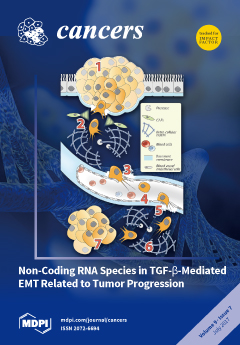Open AccessArticle
Quality-of-Life (QOL) during Screening for Phase 1 Trial Studies in Patients with Advanced Solid Tumors and Its Impact on Risk for Serious Adverse Events
by
Sidra Anwar, Wei Tan, Chi-Chen Hong, Sonal Admane, Askia Dozier, Francine Siedlecki, Amy Whitworth, Ann Marie DiRaddo, Dawn DePaolo, Sandra M. Jacob, Wen Wee Ma, Austin Miller, Alex A. Adjei and Grace K. Dy
Cited by 11 | Viewed by 5607
Abstract
Background: Serious adverse events (SAEs) and subject replacements occur frequently in phase 1 oncology clinical trials. Whether baseline quality-of-life (QOL) or social support can predict risk for SAEs or subject replacement among these patients is not known.
Methods: Between 2011–2013, 92
[...] Read more.
Background: Serious adverse events (SAEs) and subject replacements occur frequently in phase 1 oncology clinical trials. Whether baseline quality-of-life (QOL) or social support can predict risk for SAEs or subject replacement among these patients is not known.
Methods: Between 2011–2013, 92 patients undergoing screening for enrollment into one of 22 phase 1 solid tumor clinical trials at Roswell Park Cancer Institute were included in this study. QOL Questionnaires (EORTC QLQ-C30 and FACT-G), Medical Outcomes Study Social Support Survey (MOSSSS), Charlson comorbidity scores (CCS) and Royal Marsden scores (RMS) were obtained at baseline. Frequency of dose limiting toxicities (DLTs), subject replacement and SAEs that occurred within the first 4 cycles of treatment were recorded. Fisher’s exact test and Mann-Whitney-Wilcoxon test were used to study the association between categorical and continuous variables, respectively. A linear transformation was used to standardize QOL scores.
p-value ≤ 0.05 was considered statistically significant.
Results: Baseline QOL, MOSSSS, CCS and RMS were not associated with subject replacement nor DLTs. Baseline EORTC QLQ-C30 scores were significantly lower among patients who encountered SAEs within the first 4 cycles (
p = 0.04).
Conclusions: Lower (worse) EORTC QLQ-C30 score at baseline is associated with SAE occurrence during phase 1 oncology trials.
Full article
►▼
Show Figures






